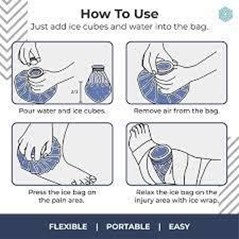A nurse is preparing to discontinue long-term total parenteral nutrition (TPN) therapy for a client. The nurse should plan to discontinue the TPN gradually to reduce the risk of which of the following adverse effects?
Hyperglycemia
Hypoglycemia
Diarrhea
Hypertension
The Correct Answer is B
TPN is a form of intravenous nutrition that provides glucose, amino acids, lipids, vitamins, minerals, and electrolytes to clients who cannot eat or absorb nutrients through their gastrointestinal tract. Discontinuing TPN abruptly can cause a sudden drop in blood glucose levels, leading to hypoglycemia .
Hyperglycemia can occur during TPN administration if the glucose infusion rate is too high or if the client has insulin resistance . Diarrhea can occur as a result of infection, bowel ischemia, or intolerance to enteral feeding . Hypertension can occur due to fluid overload, electrolyte imbalance, or vascular complications .
Nursing Test Bank
Naxlex Comprehensive Predictor Exams
Related Questions
Correct Answer is A
Explanation
Applying an ice pack to the client's knee can help reduce inflammation, swelling, and pain after a total knee arthroplasty. The nurse should avoid placing pillows under the client's knee, as this can cause flexion contractures and impair mobility and healing. Massaging or manipulating the incision site can increase pain and risk of infection or bleeding. Range-of-motion exercises are important for recovery, but they should be done with caution and under supervision, not when the client is experiencing severe pain.

Correct Answer is C
Explanation
This is because the client is experiencing bradycardia, which is a slow heart rate of less than 60/min. Bradycardia can cause decreased cardiac output, which can lead to symptoms such as tremors, fainting, dizziness, chest pain, shortness of breath, and hypotension. Some causes of bradycardia are sinus node dysfunction, atrioventricular block, medication side effects, hypothyroidism, hypothermia, and increased vagal tone.
The nurse should anticipate administering atropine sulfate, which is an anticholinergic drug that blocks the action of the vagus nerve on the heart and increases the heart rate and conduction. Atropine sulfate is the first-line drug for symptomatic bradycardia and can be given intravenously or intramuscularly. The nurse should monitor the client's vital signs, cardiac rhythm, and response to the medication. The nurse should also prepare for other interventions, such as transcutaneous pacing or permanent pacemaker insertion, if atropine sulfate is ineffective or contraindicated.
Whether you are a student looking to ace your exams or a practicing nurse seeking to enhance your expertise , our nursing education contents will empower you with the confidence and competence to make a difference in the lives of patients and become a respected leader in the healthcare field.
Visit Naxlex, invest in your future and unlock endless possibilities with our unparalleled nursing education contents today
Report Wrong Answer on the Current Question
Do you disagree with the answer? If yes, what is your expected answer? Explain.
Kindly be descriptive with the issue you are facing.
